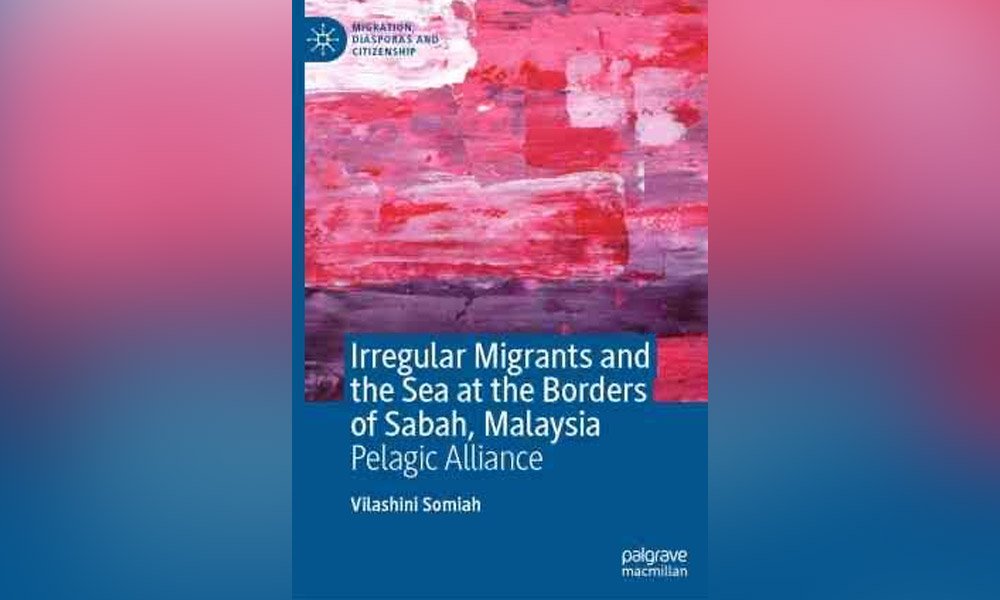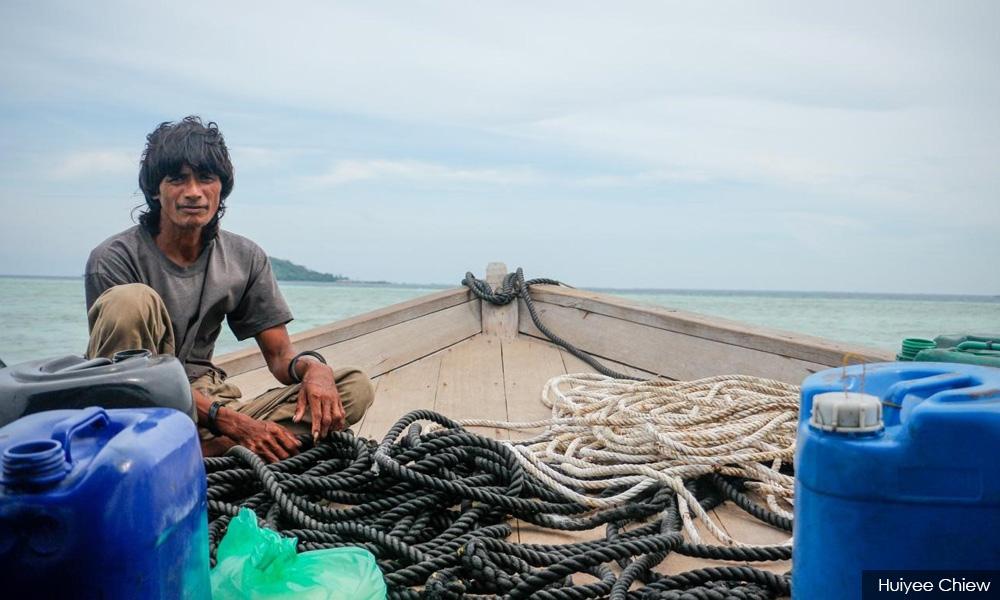BOOK REVIEW | There is a Talking Heads song with a line that goes: "Home is where I want to be, but I guess I'm already there." I found these song lyrics lingering on my mind as I read through anthropologist Vilashini Somiah's latest book Irregular Migrants and the Sea at the Borders of Sabah, Malaysia: Pelagic Alliance.
The lyrics revolve around the desire to find a home in a place or a person and feeling a sense of belonging to this entity - not dissimilar to what is felt by the irregular migrant community found along Sabah's east coast.
In Irregular Migrants and the Sea at the Borders of Sabah, Malaysia: Pelagic Alliance, Vilashini explores the lives led by Sabah's irregular migrant community and their connection to the Sulu sea.
This is set against the backdrop of what the Sulu Sea has commonly been associated with - territorial disputes, growing security threats, piracy, drug trafficking and so on.
The characters Vilashini encounters in her journey unravelling this puzzle are mired in a dilemma with the odds vastly against them as they weave through the red tape and hostility of state powers and the limbo of navigating between land and sea identities.
Despite increased threats from the state and risks to their own lives, these migrants still return - which begs the question of why they come back to somewhere which poses so much struggle to merely exist and be acknowledged?
Many had spent their entire lives in Sabah but, without valid documents, are considered stateless - with "musim chicking" (inspection season) and the fear of being detained and deported to the Philippines weighing heavily in the lives of these individuals.

'Sini'
Throughout Vilashini's expedition in the town of Sandakan (which hosts one of the largest migrant populations in Sabah), a common answer thrown around when she asks participants about their origins is the phrase "saya urang sini" (I am from here).
To this, Vilashini - a Sabah native herself - would reply by asking where is "sini" (here), which was often met by the confusion of participants in her study.
She recounts in the book that the most poetic answer she received came from a visually-impaired 77-year-old Suluk woman.
"Of course, people here are technically Sabahans, child. But it also means any land that is dampened by the sea, that's where we're from. From one end to the other. Where the earth is licked by the water, and the sea embraced by land," the Suluk elder told Vilashini.
"Her answer helped me understand 'sini' is key in how irregular migrants in Sabah self-identify. An irregular migrant's reality in Sabah is to live under the ever-watchful eyes of the authorities, which limits their options for work and lifestyle.
"Living in Sandakan is about being discreet, although, just by sheer number alone, it is impossible for irregular migrant residents to ever be that," wrote Vilashini.
"Sini", as used by these residents, is not bound by state borders. Rather, it is a nod to the community and its historical and emotional ties to the vast area surrounding the Sulu sea and parts of southern Mindanao in the Philippines.

Longing for stability
Oral history plays a big role in these communities, with stories passed down between generations. They serve the purpose of shaping their beliefs of the sea, as well as teaching newer generations its heritage and ways.
But what is the sea? The sea - in Vilashini's account - is not static by any means. In the absence of their partners due to state intervention, women - labelled as "tinggalan" (left behind) - form a deeper connection to the sea.
The sea - within the context of "tinggalan" women - is looked upon as having the power to take someone away as well as to heal and empower.
As traumatic the ordeal faced by their partners - who sometimes disappear without a trace - is to these women, they have found ways - through informal support groups - to remain resilient and, most importantly, survive.
Everyone longs for stability. Years of disappointment within the community had been brought on by the revolving doors of consular missions of the Philippines, IMM13 passes, and marriage visas, among other initiatives to secure legality.
For the vast majority of these migrants, these efforts have not been helpful in securing them a more stable life.
Yet, there is still hope among the younger generation of irregular migrants that a better future may lie ahead, defined by personal choices, improved career prospects, and recognition from the state.
These youths, often born between two different worlds of "illicit" and "legal", view themselves as being straddled between land (their homeland) and sea (symbolic of their coastal heritage).
If anything, the book provides a sense that the system, currently in place to deal with irregular migrants, is fundamentally flawed, failing to comprehend the place held by the Sulu sea among these groups.
The act of deporting merely reinforces the migrant's relationship with the sea - as an ally that works to bring those deported back to their perceived homeland later on.
As Vilashini notes, while the state sees these figures as "dangerous and undesirable, the sea has yet to abandon them". - Mkini



No comments:
Post a Comment
Note: Only a member of this blog may post a comment.